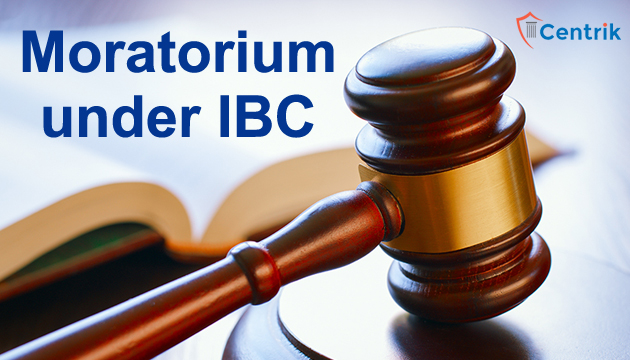
Status as on: 14/07/2023
Introduction-
The Insolvency and Bankruptcy Code, 2016 has been a significant step towards resolving the stressed assets and revival of companies in financial distress. It provides a framework for insolvency resolutions of corporate entities, partnership firms, and also individuals. The Code proposes two types of insolvency proceedings- Corporate Insolvency Resolution Process (CIRP) and Personal Guarantors’ Insolvency Resolution Process (PGIRP).
Part III of the Insolvency and Bankruptcy Code, 2016 brings in the concept of Interim Moratorium, which offers protection to individuals during the insolvency process.
What is an Interim Moratorium?
An interim moratorium has been introduced under section 96, under part III of IBC. It is a temporary protection period granted to a personal guarantor that has initiated an insolvency process under IBC. A personal guarantor is an individual who, in accordance with the Code, serves as the surety in a guarantee agreement with a corporate debtor. During this period, the personal guarantor is shielded from any legal proceedings, actions, or claims from its creditors or other stakeholders.
Duration of Interim Moratorium:
The interim moratorium begins from the date of admission of the insolvency application, filed under section 94 or section 95 of the Code, and remains in effect until the appointment of a resolution professional or the rejection of the application, whichever occurs earlier.
Implications of Interim Moratorium under Section 96 of IBC:
- Stay on all pending and fresh legal proceedings, including any actions of recovery of debts, enforcement of security interests, initiation or arbitration, or legal suits.
- Prevention of the disposal, transfer, or encumbrance of any asset without the consent of the Resolution Professional, safeguarding the value of assets.
- No party can terminate, suspend, or modify any contract or agreement solely on the grounds of insolvency, promoting the continuity of essential contracts such as supply agreements, leases, or service contracts.
Judicial Precedents:
In the case of NUI Papers and Pulp and Papers Industries Pvt. Ltd. Vs. Roxel Trading GMBH, The Hon’ble NCLAT sustained an interim decision of the NCLT (Chennai) that barred the corporate debtor and its directors from alienating, encumbering, or creating third-party interests in its assets until the application was admitted or rejected. The creditors were concerned that the corporate debtor would transfer its assets, thus this injunction was issued. The NCLT determined that the fear was justified and imposed a pre-admission moratorium in accordance with Rule 11 of the NCLT Rules, 2016.
Also, in the case of Ashok Mahindru and Ors. Vs. Vivek Parti, NCLAT decoded that the interim moratorium under Section 96 of the Code applies solely to proceedings relating to liabilities or obligations that existed at the time the moratorium was imposed. As a result, any procedures concerning liabilities or obligations emerging after the commencement of the moratorium cannot be stayed under Section 96. The NCLAT determined that the Code does not envision providing a stay of proceedings under Sections 19(2), 66, and 67 in the case at hand, thereby avoiding abuse of the Code’s power.
Conclusion:
The Interim moratorium is a crucial element of the insolvency resolution process under the Insolvency and Bankruptcy Code, 2016, providing a breathing space for the personal guarantor to consider settling his/her debts with creditors or arranging a settlement plan. It shields the individual from any legal action and ensures the prevention of the assets during the critical phase of the resolution process. While it may temporarily restrict the rights of creditors, its objective is to facilitate the revival or orderly liquidation of the personal guarantor, ultimately benefitting all the stakeholders involved.
Disclaimer: The above article is based on the personal interpretation of the related orders and laws. The readers are expected to take expert opinions before relying upon the article. For more information, please contact us at ibc@centrik.in.




 join For Updates
join For Updates